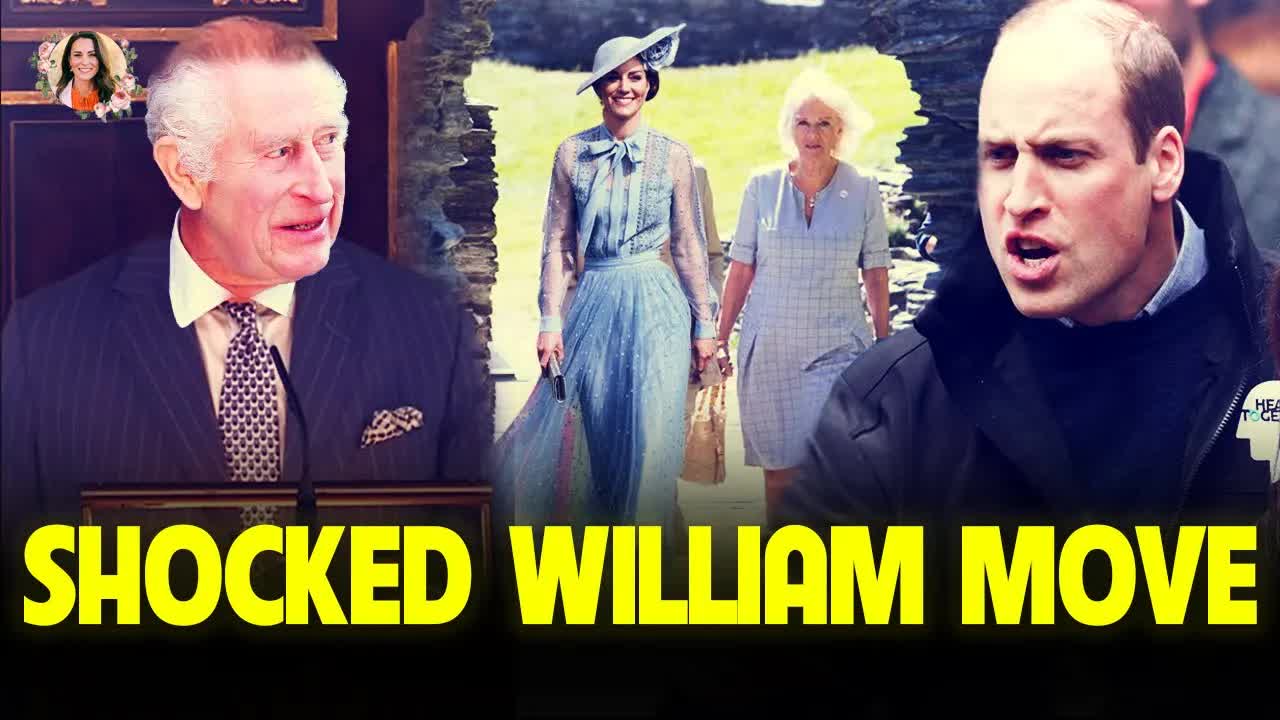Must Read
**Title: Princess Earnings and Royal Transparency: Prince William’s Controversial Choices**
In a world where some things are deemed priceless, the financial landscape of royalty often raises eyebrows.
Recent revelations from royal accounts have unveiled that the Prince and Princess of Wales amassed an impressive $46.1 million last year.
However, this figure is just the tip of the iceberg when it comes to discussions about royal wealth and transparency.
Prince William, since taking on the title of Prince of Wales in 2022, has broken from tradition in ways that have not gone unnoticed.
The Duchy of Cornwall, a sprawling estate established back in the 14th century, has become a significant source of income for him and his wife.
Worth an astonishing $2.46 billion, the estate's annual surplus now fills their coffers, allowing them to enjoy a lifestyle that equates to the earnings of at least 635 nurses.
Just two weeks ago, the Princess of Wales made headlines with her appearance at the Wimbledon men's final, further highlighting their growing wealth.
Since that event, the couple has reportedly earned nearly $1.6 million, which only adds to the scrutiny surrounding their financial situation.
While many might envy such riches, the couple's immense personal wealth raises questions about their public image and the monarchy's relevance in modern society.
One point of contention has been Prince William's reluctance to disclose his tax payments for the 2023-2024 financial year.
This stands in stark contrast to King Charles, who has openly shared his tax details for three decades.
As the heir to the throne, William benefits from the Duchy's surplus profits, which help fund the official duties and charitable endeavors of the Wales family.
Kensington Palace recently clarified that William pays taxes at the standard UK rate after deducting official expenses.
However, revealing the exact amount he pays is not mandatory, and this lack of transparency has sparked criticism.
Sources close to the prince indicated that this decision reflects their current approach, which seems less open than his father's.
Commentator Peter Hunt has voiced concerns about William's choice to keep financial details under wraps.
He argued that the prince's desire for privacy could overshadow the potential fallout from such secrecy.
As the public demands more accountability, the absence of straightforward answers may create challenges for the royal family in the future.
The House of Windsor has faced scrutiny for its perceived lack of transparency regarding financial matters.
The Duchy of Cornwall operates as a private estate, meaning there are no legal obligations to disclose how funds are allocated.
In contrast, King Charles had previously set a precedent by sharing his tax payments during his tenure as Duke of Cornwall.
The latest financial disclosures not only underscore the couple's wealth but also reveal their philanthropic efforts.
The Prince and Princess of Wales have made undisclosed donations to various charities, including those supporting Ukraine amid the ongoing conflict and relief efforts for earthquake victims in Turkey and Syria.
Additionally, they have contributed to mental health charities and the London Air Ambulance service.
Interestingly, Prince William is adopting a more modern approach to communication.
Alistair Martin, the outgoing secretary for the Duchy of Cornwall, shared that the prince prefers using WhatsApp to connect, contrasting with his father's preference for phone calls.
This shift indicates a willingness to engage in a more contemporary manner while managing royal responsibilities.
Martin noted that his exchanges with William often resulted in multiple messages over weekends, showcasing the prince's hands-on involvement in his duties.
This proactive communication style reflects a desire to remain connected and responsive, particularly in times of success or challenge.
As the royal family navigates the complexities of wealth, transparency, and public perception, one thing is clear: the balance between tradition and modernity will continue to shape the future of the monarchy.
With increasing scrutiny on their finances, the Prince and Princess of Wales face the task of maintaining their royal legacy while adapting to the expectations of a contemporary audience.






































